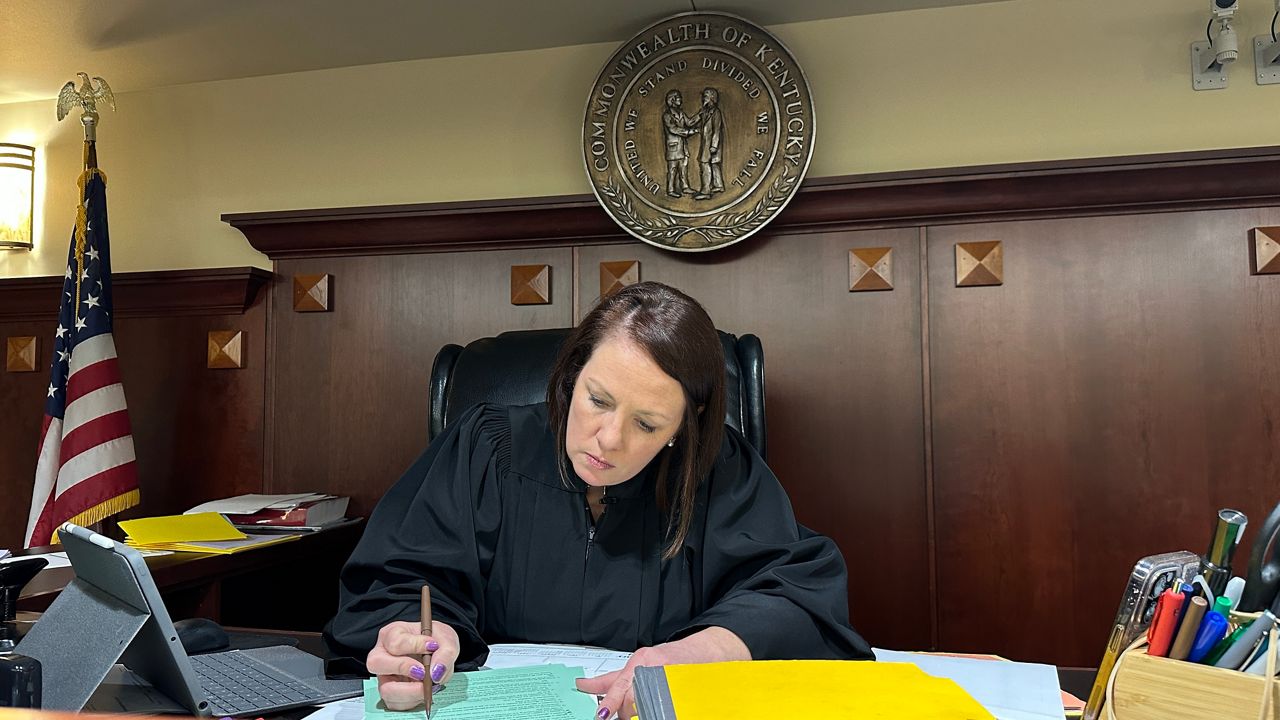FRANKFORT, Ky. — After having the highest child victimization rate in the U.S. from 2017 to 2019, Kentucky’s ranking has decreased in the last few years.
In fact, according to the U.S. Department of Health & Human Services’ 2022 Child Maltreatment Report, Kentucky has dropped to No. 13 of all 50 states.
However, there are advocates questioning this ranking. Some are worried about the Cabinet for Health and Family Services’ (CHFS) Department for Community Based Services’ (DCBS) screening assessment when someone reports child abuse or neglect.
In a statement, CHFS said this improvement “demonstrates the efforts made by the Department for Community Based Services and its many partners to increase the provision of child welfare prevention services and reduce child abuse and neglect within the Commonwealth.”
Child welfare volunteers and two family court judges have given testimonies in Frankfort in the last few months. They have voiced their concerns over DCBS’ Structured Decision Making (SDM) Intake Assessment to determine if a child abuse or neglect case meets criteria for investigation.
Barren County Family Court Judge Mica Wood Pence was one judge who testified.
“Shortly after taking the bench, there was a fatality that was brought to my attention by the labor and delivery unit here at T.J. Samson Hospital, and someone was concerned,” Pence said. “They said, ‘We had this baby here; the mom tested positive, and the baby did too for [tetrahydrocannabinol]. We called the Cabinet, and nothing was ever done; no one ever followed up on a report.’”

The baby died at three months old after being in a car accident. Investigators said both parents were under the influence of methamphetamine and didn’t put the baby in a car seat.
“That caused me great concern," Pence said. "From that point forward, I just started to look out for, where are we missing it? Where are we missing, not getting help to these families?”
One of Pence’s concerns is with the SDM tool used when people call “Centralized Intake” to report a suspected case of child abuse or neglect. There is a series of questions people are asked based on state guidelines.
After the screening assessment, a social worker and a supervisor review the case to determine if an investigation is needed. However, Pence said the screening process doesn’t follow all the state’s statutes of what is defined as child abuse and neglect.
Some examples she said are missing from the assessment are allowing abuse or creating a risk for it and not being able to care for a child due to substance use disorder.
“My hope is that we can update their screening tool so we’re not missing kids,” Pence said. “I don’t care what our numbers look like. I care that we’re helping all the kids in the Commonwealth who need us.”
In a separate statement, CHFS said: “We continue to work to ensure the department addresses all reports that meet the legal definition of abuse and neglect which are established in state law and policy. We have worked closely with federal partners to analyze our screening criteria and follow the protocols designed to protect the vulnerable.”
Shelby County Judge Marie Hellard is also concerned with the screening tool and cases not meeting criteria. She testified alongside Pence in Frankfort.
“The alarm has to be sounded because I’m not joking when I say children are perishing in the state of Kentucky because of this ‘Structured Decision Making’ tool and because of the referrals that are not meeting criteria that are called into ‘Centralized Intake,'” Hellard said.
Kentucky’s Child Fatality and Near Fatality External Review Panel’s 2023 annual report has a list of concerns regarding DCBS. Among them are gaps in contact with families and children, screening out CPS referrals and a lack of thorough investigation. According to the report, concerns about screening out CPS reports have been “longstanding” and remain significant.
“My hope isn’t that we remove more children from their home,” Pence said. “I don’t want to see more children in foster care. My hope is that if we intervene early enough, we can prevent real harm from happening so that we can intervene before things get so bad that harm has been done to these children that we can’t fix.”
Melynda Jamison, executive director of CASA of Lexington, gave a testimony in Frankfort in July 2023 to also raise concerns about this issue. Through her work, she has seen several examples of families not having petitions filed. Jamison was emotional as she recalled a case with a child fatality.
“We were appointed to a case where there was a child fatality, and we were appointed to the siblings," Jamison said. "When we got their records, we realized there had been multiple calls for services that they hadn’t met the criteria."
"When I stop and think about that, that we could have prevented a child’s death, how that doesn’t motivate you? I’m not sure.”
State Rep. Samara Heavrin, R-Leitchfield, who is also the chair of the House Standing Committee for Families and Children, is drafting up legislation based on recommendations that were brought forth during some work sessions. Judges Pence and Hellard were part of these conversations along with members of CHFS.
“They include wait times, so maybe getting some better reporting from CHFS on wait times, or how long it’s taking to respond or for an investigation to happen for these cases,” Heavrin said. “We also [are] looking at weighted professional sources, so if there are more than two professional sources that are cited through ‘Centralized Intake,' then it would open an automatic investigation to look further into that case.”
Heavrin said this legislation will be a house committee substitute that will be added to House Bill 271, which would add written reports of child abuse or neglect back into state law.
She is optimistic about this effort and said it is receiving bipartisan support. Heavrin plans to have it in committee Thursday.



